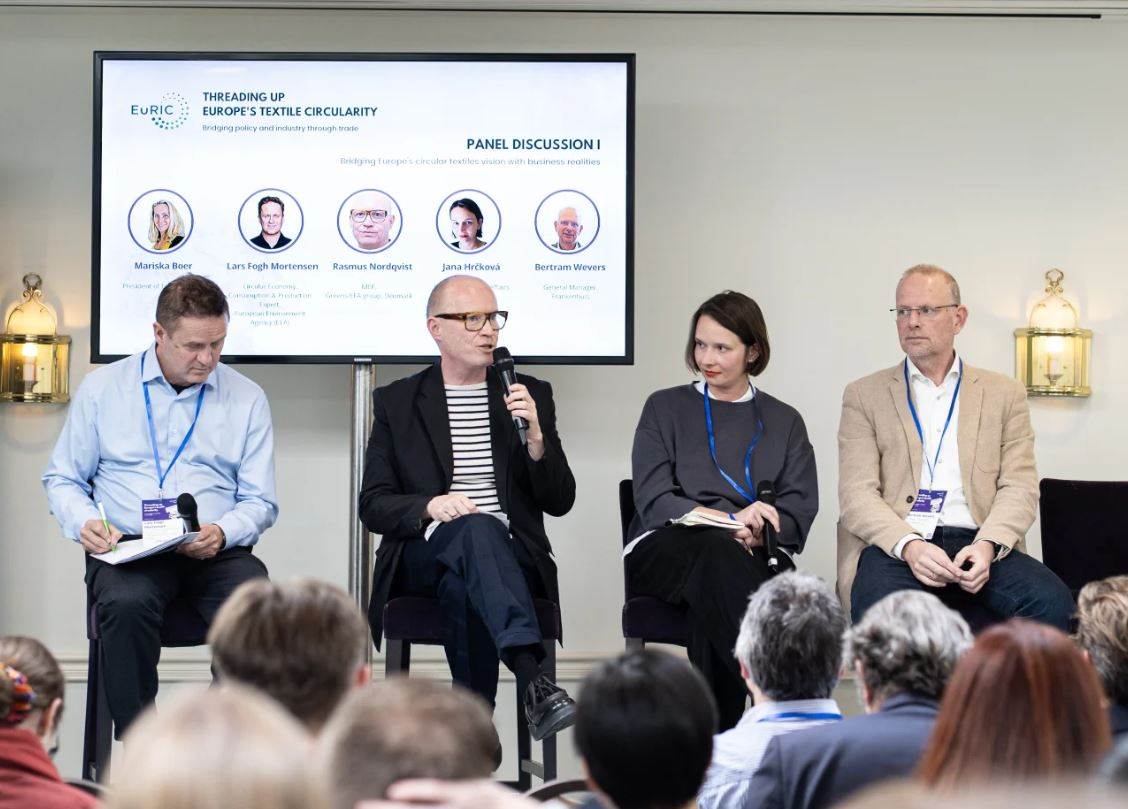Brussels event unites recyclers and policymakers

The European Recycling Industries Confederation (EuRIC) brought together sorters, recyclers, manufacturers, retailers, policymakers, academics and circularity experts at an event in Brussels with a view to bridging the gap between policy and industry in the textile sector.
The event that gathered more than 130+ participants, began with a presentation by Mariska Boer, president of EuRIC’s Textiles Branch, who outlined its key recommendations for achieving textile circularity by 2030. These include defining robust ecodesign requirements, strengthening fair trade, implementing efficient extended producer responsibility (EPR) schemes and balancing chemicals legislation.
Karolina D’Cunha, acting head of the Waste to Resources Unit at the European Commission, delivered a keynote speech reaffirming that the transition to a circular economy remains central to EU policies, particularly through initiatives such as the Circular Economy Action Plan and more recently the Clean Industrial Deal (CID). She acknowledged that while progress has been made in modernising EU waste legislation, much remains to be done to create a level playing field between virgin and secondary raw materials and establish a unified market for waste.
Lars Fogh Mortensen from the European Environment Agency presented key findings from the EEA’s latest briefing on the circularity of the EU textiles value chain, which suggested that succeeding with the EU’s textile strategy will require a systemic shift towards higher quality, longer use, and increased reuse, repair, and recycling.
Danish MEP Rasmus Nordqvist stressed the need to tackle challenges related to emerging online platforms and fast fashion.
Jana Hrcková (Decathlon) emphasised the importance of harmonised EPR systems, as well as securing financial support at both EU and national levels to promote recycling.
Bertram Wevers (Frankenhuis) pointed out that while recycling technology is available, demand for recycled materials remains insufficient, and there is a narrow focus on fibre-to-fibre recycling rather than a more holistic approach.
Debbie Shakespeare (Avery Dennison) discussed how digital innovations, such as RFID and data traceability, can help implement the Digital Product Passport, optimise supply chains, improve sorting, and engage consumers.
Elisa Tonda from the United Nations Environment Programme stressed that clarifying the definition of textile ‘waste’, creating infrastructure for circularity and improving company practices are essential.
Dr. Hannah Parris from the University of Cambridge presented recommendations for reforming international textile trade codes (HS Codes) to better support the circular and sustainable textile economy. Chiel Berends (European Commission) emphasised the need for implementing legislative measures and collaborating with international partners, including advocating for textile waste to be included in global regulatory frameworks like the Basel Convention.
Ana Rodes (Recover) and Martin Böschen (TEXAID) called for clear regulations and guidelines for customs authorities inspecting shipments of used textiles or recycled fibres, as well as the importance of financing waste streams through mechanisms such as EPR schemes. Mustafa Sattar (Retex Global) raised concerns about the competitive pressures from countries like China, urging the need for better data to address these challenges. The panel concluded with a call for stronger global cooperation, clear regulations, and incentives to create a sustainable circular textile economy.






